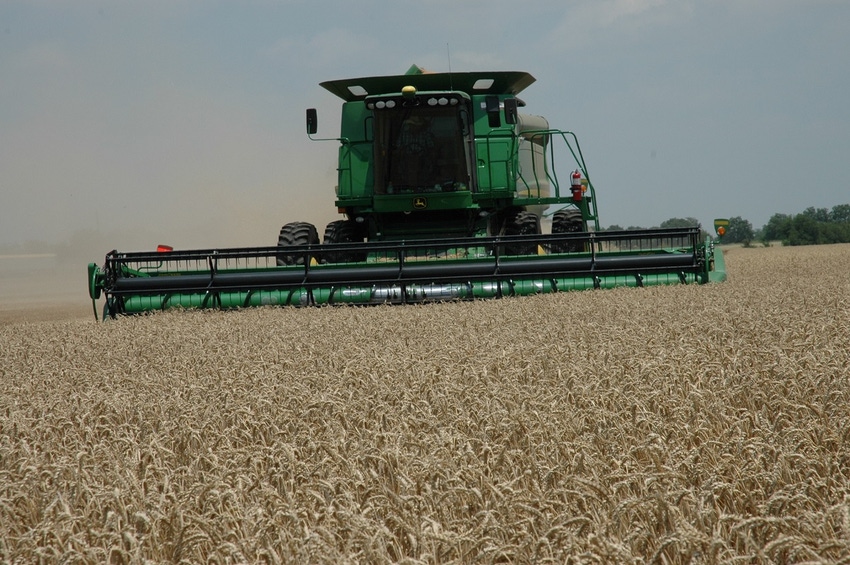November 2, 2017

While many farm groups have voiced support for renegotiation of the North American Free Trade Agreement (NAFTA) in hopes of improving the pact by modernizing such things as Internet banking, including international fund transfers, and a more balanced money exchange system, many producers are more concerned about how any new agreement might affect their bottom line.
Confusion, like a heavy fog, still lingers after a fourth round of talks ended on a downward note two weeks ago following an apparent difference of opinion on several issues, and an overall lack of willingness to compromise.
After the unexpected development, trade partners on all sides of the issue agree that the recent breakdown in talks signals little hope remains for talks wrapping up before the end of the year. Both Mexico, with a national election looming in 2018, and the United States with mid-term elections coming in 2018, were hopeful of preventing NAFTA from becoming a tool for politicians across all borders.
Representatives from the United States, Canada and Mexico cited “significant conceptual gaps” in how to rewrite NAFTA, and collectively agreed to take time for each trade team to brief their government leaders before the sixth round of talks get underway in mid-November.
AG INDUSTRY CONCERNS
The move concerns some farmers and livestock operators who say they depend on trade with Mexico. Corn farmers in the Midwest and ranchers in Texas and Oklahoma possibly stand to lose the most, but they're not the only ones.
It should come as no surprise, but when it comes to agricultural trade, Texas ranks as Mexico's number one trade partner, and vice versa. A potential trade disruption could have a significant economic impact on Texas agriculture.
A report released earlier this year by the Center for North American Studies at Texas A&M University shows the total economic impact of Texas agricultural exports. According to the study, Texas agricultural export trade to Canada and Mexico totaled more than $3.3 billion and supported 18,674 jobs in 2016.
The study showed the economic impact of U.S. agricultural exports to Canada and Mexico totaled $107.8 billion and 509,332 jobs in 2016, according to Center Director Dr. Luis Ribera, a Texas A&M AgriLife Extension Service economist.
“This gives us a good picture of how important it is to keep these markets open,” Ribera told AgriLife Today earlier this year. “When you look at it, over 509,000 jobs and almost $108 billion in economic impact is a lot of money and jobs, especially now that commodity prices are low and farmers are struggling to make a profit.”
According to the study, the NAFTA was designed to expand the flow of goods, services and investment throughout North America. NAFTA eliminates import tariffs and the elimination or fullest possible reduction on non-tariff trade barriers, such as import quotas, licensing schemes and technical barriers to trade.
NAFTA ADVANTAGES
U.S. agricultural exports increased 192 percent since 1994, when NAFTA was negotiated between the U.S., Canada and Mexico, according to Ribera. He said U.S. agricultural exports to Canada and Mexico increased 288 percent during the same period.
According to Texas Congressman Henry Cuellar, some of the issues separating the three member nations include what percentage of a product should be made in the U.S. and whether the trade impact should expire every five years—two issues strongly supported by the Trump White House.
But Cuellar says he remains hopeful the three countries can work out their differences.
WHAT HAPPENS IF NAFTA TALKS FAIL?
The real worry over NAFTA is that after 23 successful years, the trade agreement could quickly fall apart, which would affect agriculture on both sides of the border.
First and foremost, is the question as to whether President Trump could withdraw from NAFTA on his own accord. Most political analysts seem to believe that may well be within the powers granted by both the Constitution and by rules of the agreement itself.
But that doesn't mean it would happen without incident. For example, Congress could legally push back against such a presidential move before it happens. Lawmakers could also pass a resolution calling on the president to obtain congressional authority before invoking the NAFTA clause that lets countries pull out, and they could also threaten to block the president’s agenda unless he secures congressional approval to withdraw.
But, assuming NAFTA efforts do fail in the end, what could happen with the existing trade contracts we have with Mexico? It depends on action by the two countries involved as point-of-origin and point-of-destination. Most likely, the return of tariffs would come into play, along with other and more complicated rules for trading specific products.
All three trading partners, the United States, Mexico and Canada, could opt to institute "average tariffs" on specific goods, similar to a system used in the past and still used in many places in the world today. But under such a system, agricultural products would be taxed differently, and the change could be radical, as much as 25 percent or more of total value.
Last week Mexico proved to the world they do not necessarily need the U.S. as an agricultural trading partner. Mexico closed a deal with Argentina for 30,000 tons of wheat for a December delivery. Making the prospect even more difficult for U.S. farmers who regularly do business with Mexico, analysts believe if the NAFTA agreement were to be terminated, the biggest losers would be U.S. farm and livestock operations.
Of greatest concern so far, might be that Commerce Secretary Wilbur Ross dismissed concerns recently that withdrawing from NAFTA, the trade treaty President Donald Trump has repeatedly threatened, would cripple American agriculture businesses.
You May Also Like




